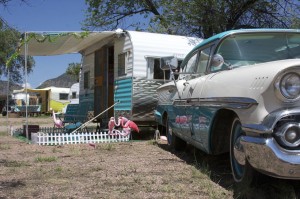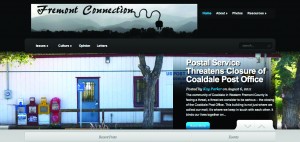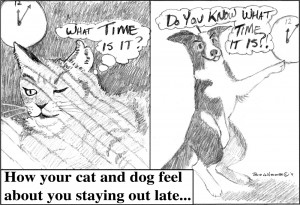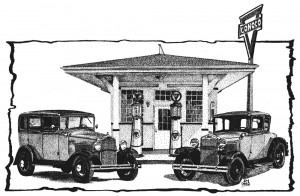By Ed Quillen
The exact date cannot be determined now, but it was about twenty years ago, in the late 1980s or early 1990s, that the Salida Improvement Commission began its important work of getting a better class of people in town.
“We have entirely too many poor people in town,” one member stated at the star of the meeting. “As long as they’re around, they’ll depress property values and otherwise delay our progress into become a world-class four-season destination center.”
Another member shouted. “This is a ramshackle town in the middle of nowhere. It’s a railroad town where the train doesn’t stop any more. We’re never going to be a world-class anything. And besides, we need poor people.”
“He’s right,” a member agreed. “If we didn’t have poor people, who’d work for the wages we pay around here?”
“Good point, but do they have to live in Salida? Why not Smeltertown? Or even better, Howard or Villa Grove?”
The leader waited for silence before speaking. “Then I think it’s agreed that we need to find some mechanism for forcing poor people out of Salida. I propose we start by raising the price on some necessity. Any ideas?”
“Trash,” came a voice from the back. “We can use the new Environmental Protection Agency guidelines as a reason to set up tip fees at the county landfill.”
“Wait a minute,” someone interjected. “If it started costing them to make a dump run, wouldn’t they just quit making dump runs? And then the trash would pile up on their property, making for sanitation and health hazards.”
“Not to mention a blight on property values.”
The leader mulled for a moment. “But if we got the city and the county to pass ordinances requiring people to keep their property in good order, then we could fine them if they didn’t spend money going to the dump – excuse me, sanitary landfill and recycling center. It’s best if we use modern terminology here, don’t you think?”
“You think they’ll stand for that? They may be low-lifes, but our low-lifes have mean dogs and guns and dynamite.”
“If we take it slowly,” the leader said, “and tell everybody that the tip fees are for their own good and for protecting the environment, I think we’ll be able to pull it off.”
“Just how does charging people to use the landfill protect the environment? Doesn’t that just make it more likely that they’ll dump their trash along some back road, or in an old gravel pit, or down an old mine shaft, or some other place where they shouldn’t because it won’t cost them anything? That’s good for the environment?”
“Okay, you might have a point there, but we can always step up enforcement of our anti-dumping laws. And face it, people generally support environmental protection. So if we spin the tip fees that way, we look like good guys, standing up for Mother Nature.”
“As opposed to a bunch of greedheads trying to chase the poor away?” the leader responded. “Remember back in 1980 or so, there was a county commissioner who wanted to get rid of clotheslines and wood piles because they were unsightly, even though they did save residents some money on utility bills.”
“And what happened?” several people asked, because their panoramic scenic vistas had been disturbed by clotheslines and wood piles on that very morning.
“He was recalled from office,” the leader said. “We can’t be blatant about this, and we cannot act on aesthetic grounds if there’s any way around it. Let’s just say we’re focused on protecting our magnificent environment even if we’re really just trying to jack up property values so that the wrong kind of people won’t be able to afford to live here.”
Doubtless the Improvement Commission met frequently in ensuing years, but the records have been lost. The next recorded meeting was in 1998, more or less, and focused on outdoor recreation.
“Again we face the challenge of getting a better class of people here,” the chairman began. “And to do that, we need to encourage the emigration of undesirables. One of our earlier strategies – charging tip fees at the landfill while rigorously enforcing sanitation laws – has helped a great deal. But we must do more. The floor is now open for suggestions.”
The silence seemed ominous but it did not last more than a few seconds. “We have all this public land around us which offers free recreation. Our local low-lifes can go out there and hike, camp, fish, hunt, cross-country ski, mountain-bike, kayak, pretty much you name it, without spending any money. No wonder we have so many undesirables living around here.”
“I don’t think you’re being fair,” someone objected. “They have to buy hunting and fishing licenses, don’t they?”
“In theory,” the chairman agreed. “But I’d bet a lot of them don’t. The chance of getting caught is pretty slim.”
“And how would you know?” someone asked in a sarcastic way before a more thoughtful member spoke up.
“Our basic problem, as I understand it, is that the abundance of cheap or free recreation in this ware is encouraging undesirables to stay, and it may well be attracting some to move here. Have I got that right?”
Everyone in the room nodded and a few uttered agreement.
“Since all of us enjoy that recreation, too, in some form or another, we don’t want to eliminate it. But we do need to start charging for it, to discourage the low-lifes from settling around here.”
Thus evolved a plan for improved facilities, worthy of handsome fees, for the Arkansas Headwaters Recreational Area. More Forest Service camping areas were converted to a fee basis and assigned to for-profit concessionaires to operate, and the fees were raised at the existing ones. The Forest Service was encouraged to make Chalk Creek a demonstration area for the Recreation Access Tax – visitors would be required to purchase a day or week pass, and residents could get an annual pass.
Several years later, another system for the improvement of trail users was adopted on some routes – convert them to mountain bike use, thereby encouraging recreationists who could afford $3,000 bicycles and discourage those who couldn’t.
All these, along with elevated real-estate prices, made Salida somewhat less attractive to immigrants who were not People of Money. However, there remained some holdouts who had moved there years before, buying property when Salida was affordable and somehow holding on ever since.
They were the topic of the most recent meeting of the Improvement Committee.
“Some of them are still here,” the chairman complained. “I thought for sure that if we jacked up property taxes to pay for the new high school, they’d see that they weren’t welcome here any more, if they ever were, and they’d move on to some place they’d feel more comfortable, like maybe Gardner.”
A hand went up and its owner was recognized.
“I don’t think we should give up on taxing them away. I know the city doesn’t have a mill levy any more, but there’s a chance of raising some county taxes this fall.”
Another voice spoke up. “That’ll help improve the community, but I think we could do more to make life difficult here for the undesirables.”
“And how would we do that?” the chairman asked.
“Jack up water rates.”
There was an objection. “Won’t some of them just quit watering their yard? Already we’ve got a lot of butt-ugly xeriscaping. It could end up depressing property values if we’re not careful.”
“I think that most of the people who were going to replace their lawns with cobbles have already done it. And besides, raising water rates is an easy sell. We just say it’s for the environment, that we have to conserve water and raising the price is a good way to encourage conservation.”
“Good points,” the chairman agreed. “So we’ll go that route this year and see what happens. I do need to point out that it’s a good thing that no one ever asks what we’re saving the water for. They just cheer us on we say we’re saving it. Is this a great country or what?”
Author’s note: To the best of my knowledge, there is no Salida Improvement Commission dedicated to eliminating the economically challenged while encouraging a better class of people in town. But it does seem to explain a lot of things, doesn’t it?
Ed Quillen, who helped found this magazine 17 years ago, is glad to have indoor plumbing, but has long hoped to live in a house with more than one bathroom.




